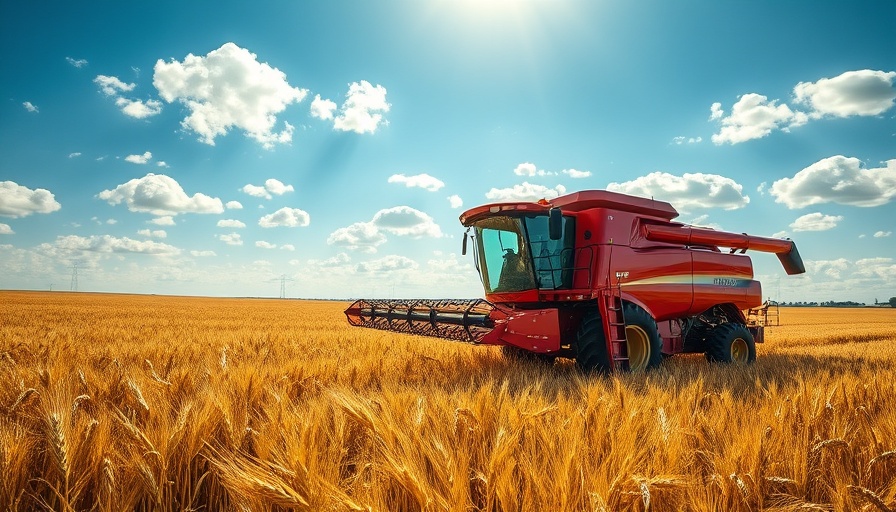
Understanding the Rice Crisis: An Urgent Challenge
The world is facing an unprecedented rice crisis that threatens food security globally. With rice being a staple for over half of the world’s population, the implications extend far beyond mere economics; they encompass social stability and health. This crisis stems from a combination of climate change, rising production costs, and geopolitical tensions affecting key rice-producing countries. Consumers may find themselves confronted with increased prices and potential shortages, particularly in developing nations where rice is a dietary cornerstone.
Climate Change's Impact on Rice Production
The effects of climate change are increasingly evident in agricultural yield, particularly in rice farming, which is notably sensitive to temperature fluctuations and water availability. According to experts, irregular rainfall patterns and heightened storms jeopardize rice fields worldwide. Countries such as India and Vietnam, some of the largest exporters of rice, are experiencing these impacts acutely, which raises fears of reduced harvests.
Geopolitical Tensions and Their Role
Geopolitical factors further complicate the crisis. Trade embargoes and fluctuations in policy from major rice-exporting nations result in unpredictability for global markets. For instance, the recent strategic export controls by certain countries to protect domestic supplies have led to a ripple effect, inflating prices in importing countries. This interdependence on a few key players in the rice market underlines the importance of international cooperation in ensuring supply stability.
Future Trends and Solutions
Experts advocate for innovation in agricultural practices and investment in rice research to enhance resilience against climate impacts. Initiatives promoting climate-smart agriculture and sustainable farming techniques can play a critical role in addressing the crisis. Furthermore, increasing awareness and encouraging governmental support for farmers can help mitigate the adverse effects of this looming rice crisis.
Conclusion: Taking Action Now
Acknowledging the complexity of the rice crisis is essential for understanding its global impact. With concerted efforts from governments, farmers, and consumers, proactive measures can be implemented to alleviate pressures on rice supply chains. Education and informed advocacy can lead to more sustainable agricultural practices, ensuring food security for future generations.
 Add Row
Add Row  Add Element
Add Element 



 Add Row
Add Row  Add
Add 
Write A Comment